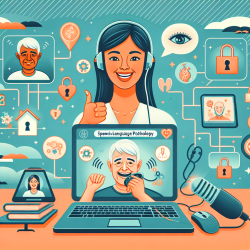The rapid advancement of mobile health (mHealth) technologies offers promising solutions for managing neuropsychiatric conditions. However, the science evaluating their efficacy often lags behind. A recent study titled "Characteristics of Neuropsychiatric Mobile Health Trials: Cross-Sectional Analysis of Studies Registered on ClinicalTrials.gov" sheds light on the current landscape of mHealth trials for neuropsychiatric disorders. This blog explores key findings from this study and provides insights on how practitioners can leverage these findings to improve their skills and encourage further research.
The Current State of Neuropsychiatric mHealth Trials
The study conducted a systematic search of ClinicalTrials.gov to identify trials involving smartphone interventions for the top 10 most disabling neuropsychiatric conditions, including stroke, migraine, major depressive disorder, and others. The analysis revealed that only a few apps are being clinically evaluated despite the increasing use of health-based technologies.
- 135 studies were identified, with major depressive disorder being the most common focus (28.9%).
- Most studies were registered between 2016 and 2018.
- Only 18.5% of trials had publicly accessible results.
- A quarter of the studies were funded by the National Institutes of Health (NIH).
Implications for Practitioners
The study highlights several implications for practitioners in the field:
- Encourage Rigorous Evaluation: Practitioners should advocate for more rigorous clinical evaluations of mHealth apps to ensure their efficacy and safety before widespread adoption.
- Focus on Evidence-Based Interventions: With many apps lacking clinical evidence, it's crucial to prioritize interventions backed by scientific research.
- Promote Transparency: Encourage transparency in trial registrations and result reporting to build trust and inform future research and practice.
Opportunities for Further Research
The study also points out areas where further research is needed:
- Diverse Study Designs: Explore diverse study designs that can accommodate the unique challenges of mHealth interventions.
- Long-Term Outcomes: Focus on long-term outcomes to understand the sustained impact of mHealth interventions on neuropsychiatric conditions.
- Global Collaboration: Foster global collaboration to overcome regulatory challenges and share best practices across regions.
Conclusion
The insights from this study provide a foundation for practitioners to enhance their skills by integrating evidence-based mHealth interventions into their practice. By encouraging further research and promoting transparency, we can ensure that digital health technologies are both effective and safe for patients with neuropsychiatric conditions.
To read the original research paper, please follow this link: Characteristics of Neuropsychiatric Mobile Health Trials: Cross-Sectional Analysis of Studies Registered on ClinicalTrials.gov










